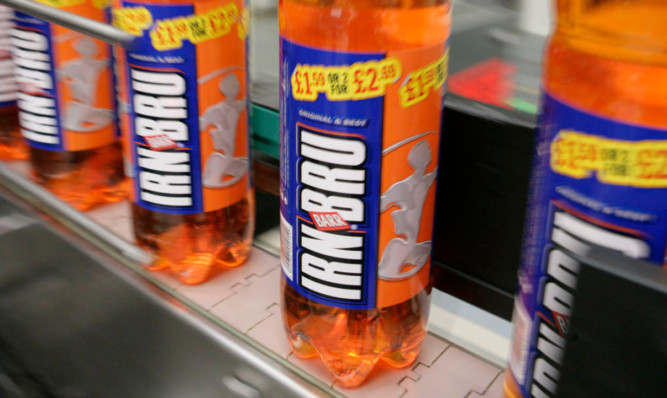The fizz has gone out of a merger between two of the UK’s biggest soft drinks firms despite the proposal picking up formal approval from competition authorities.
In a statement to the stock exchange on Tuesday following a Competition Commission ruling clearing the deal, Britvic chairman Gerald Corbett gave his firm’s clearest indication yet that an agreement to merge with AG Barr the company behind Irn-Bru and Forfar-based Strathmore water had gone flat.
But he dangled the prospect of a new deal on materially better terms following a striking turnaround in Britvic’s prospects over the last 12 months.
Barr’s £1.4 billion all-share reverse takeover was set to create Europe’s largest drinks firm, based in Cumbernauld, before the Office of Fair Trading announced it would be examining the proposal in February.
In an intervention which effectively swept the deal off the table, the OFT said surveys had shown some Britvic brands were “sufficiently close alternatives” to Barr’s offerings to raise concerns.
But, following a full investigation, the Competition Commission said it was content that the merger would not “result in a substantial lessening of competition”, and would not cause wholesale prices to rise significantly.
Britvic’s board has used the intervening months to tackle the Hertfordshire firm’s own performance appointing a new chief executive in Simon Litherland, and launching a cost-cutting drive designed to create efficiencies of around £30m a year.
Mr Corbett cited those improvements as he stressed that Britvic was “in a very different position to last summer when the merger was agreed”.
He said the company would consider any fresh proposal, but that Britvic’s standalone prospects were “bright”.
“The merger benefits are materially less than they were, and our share price is almost twice the level it was,” he said.
Under the terms of the agreement, Barr investors would have owned 37% of the new group’s share capital, with Britvic’s shareholder equity accounting for the remaining 63%.
Barr boss Roger White had been earmarked as chief executive of the combined group, but up to 500 jobs were expected to be cut from a combined staff of 4,200.
